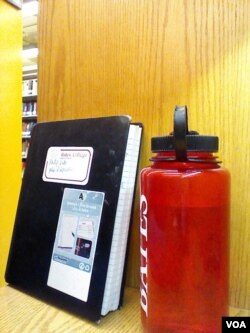For instance, I was hoping to apply to the J.P. Morgan freshman and sophomore internship program for the summer, but they have a strict GPA requirement and mine fell just slightly below the threshold. I had not previously been concerned about my GPA, which I considered quite respectable, but I was frustrated that my current GPA would make me miss opportunities like this.
As a result, I decided to take a scientific approach to bringing up my grades. I started taking notes on the things I did on days when I was most productive and days when I was least productive. In each day that followed, I would try and replicate the actions that had resulted in a more productive study routine.
By the end of the experiment, I came up with five definitive actions that made me more successful in my studying. And, I am happy to report, that after implementing these changes in my routine, my GPA this semester was 9.6% higher than it had been last semester.
I would like to share the results of my experiment with my fellow students in the hopes that my findings will benefit your study routine as well.
1) Drink water
I found that I could think more clearly and better understand whatever I was studying when I was well-hydrated compared to days when I was dehydrated.
It’s not just me. A recent study found that college students who brought water with them to exams did better than those who did not. Several other studies have also suggested a possible link between hydration and things like concentration or memory, as well as general brain functioning.
All the studies are careful to point out that they haven’t definitively established a link, but I started carrying my 32 oz water bottle with me everywhere to keep myself hydrated and I really felt that it made a difference. Plus it was a very easy change to make in my routine.
2) ExerciseThis is another one that has science behind it. Numerous studies have shown a possible link between exercise and brain function, both in testing with animals and with people.
I definitely found I was more productive when I was exercising regularly. Taking time out to exercise provided a good study break, which rejuvenated my body and mind. In addition, exercising during the day made me more tired at night, and this allowed me to get a more restful sleep, waking up refreshed and ready to tackle the day and the challenges it would bring.
3) Review class notes within 24 hours of taking themIt might sound like a lot of extra work, but going back over your notes soon after class has some benefits. First, by thinking about the material again, you can identify anything you didn’t understand and get help in clarifying it right away.
In addition, it gives you the opportunity to make your notes clearer while you still remember what the professor had said, which definitely helps when finals are on the horizon. During finals week this semester I found it a lot easier to study because I had taken the time to edit my notes and make them more concise and understandable.
It also helped me retain much more of the material I learned in lectures. Sometimes when studying for exams I would be surprised to remember in detail something the professor had talked about at the beginning of the semester.
4) SleepCollege students are known for surviving on little sleep, but for me this was the most important habit to master. On seven or eight hours of restful sleep I was able to focus more easily in lectures and while I was studying, and retain more of the material.
Ironically, refraining from pulling all-nighters made it so that I didn’t have to cram as much and didn’t have to pull all-nighters.
If you’re interested, there is science behind this one as well.
5) Stay away from Facebook and email during study timeOnce your mind gets distracted it can take awhile before it refocuses on the activity it was involved in. Sometimes I would just click on one link that would lead me to another and then another, or maybe a friend would message me and before I knew it I had wasted a solid chunk of time that I should have been using to work on my school material.
To prevent myself from checking my social media accounts, I would completely log off the accounts when I was working, and I uninstalled the social media applications on my tablet to prevent those disruptive updates from popping up. Sometimes I would leave my device in my dorm when I went out to study, that way I didn’t have to think about what was happening in the social media world.
Of course, attributing the modest increase in my GPA just to the aforementioned habits is a simplistic explanation. I encourage every student to do what’s required of them: go to class, take good notes and study hard. But it certainly doesn’t hurt to find the little routines that help you get more out of those activities. As Samora Machel, former president of Mozambique once said, al luta continua – the struggle continues.



